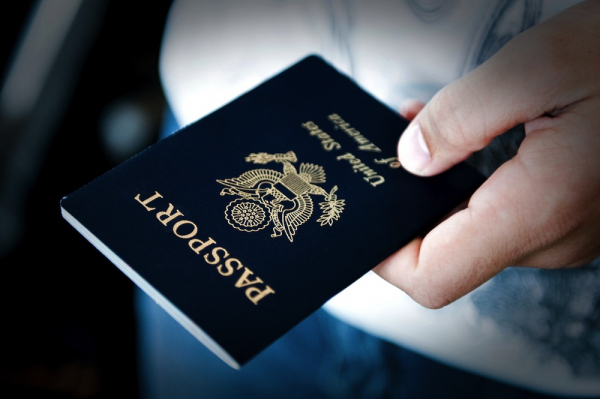New Hampshire Adoption Guide
Welcome, New Hampshirites! This guide was written to provide you with a single place to find information about adoption within New Hampshire. It will walk you through everything from laws that will impact your adoption to reviews of adoption service providers in New Hampshire.

Adoption in New Hampshire at a Glance
- Kids in foster care waiting to be adopted in 2014: 159
- Foster adoptions completed in 2014: 120
- International adoptions completed in 2015: 21
- Average time between TPR and adoption finalization: 40% (1-5 months), 33% (6-11 months)
Can I Adopt in New Hampshire?
- Age: 21+
- Marital Status: Single or married, kids or no kids
- Work: Stable income to provide for a family, enough room to house a child
- Personality: Warm, trustworthy, willing to adapt to new situations
- Experience: None required
- Income: Sufficient to cover financial needs
- Other Requirements: Must submit 5 references to the adoption agency, complete an autobiography, provide medical history for all family members, provide local health and fire inspections for the home, complete at least 2 home visits by a social worker, and attend FACES adoption training
- Disqualifying Crimes: Spousal or child abuse/neglect, crimes against children, and violent crimes including homicide, sexual assault

Developing a Support System
It’s essential to have a good network of family, friends, and neighbors to support you through your adoption process.
It’s also important to connect with other adoptive parents. You can begin making these connections in our forums. You may also want to consider joining a support group for adoptive parents.
Domestic Infant Adoption in New Hampshire
Before you get started, check out our Baby Adoption Guide to learn more about the overall process of adopting an infant in the United States. Then, because laws and processes vary from state to state, come back to get the details about adoption in New Hampshire.
Get Professional Help
In New Hampshire, you are able to work with local and private agencies or attorneys to complete an adoption.
Some people pursuing a private adoption find it beneficial to work with a professional adoption facilitator, an individual or organization that matches birth parents with adoptive parents in exchange for a fee.
Paid adoption facilitators/adoption advertising is limited or restricted in many states. The following are the guidelines outlined in New Hampshire state statutes regarding adoption facilitators and adoption advertising:
Use of Advertising:
Licensed child placing agencies may publish advertisements for the services they are legally capable of performing. No person may advertise their desire to solicit or offer a child for placement without a valid license (§ 170-E:39).
Complete a Home Study
Regardless of whether you choose to adopt through an agency or adoption attorney, hopeful adoptive parents need to complete a home study to qualify for adoption.
This is different than a single home visit. The process includes completing paperwork, writing essays, obtaining letters of recommendation, completing a physical, and undergoing a criminal history background check. In a home study, a caseworker may visit multiple times in order to write a report culminating in approval for adoption.
Your home study social worker will help educate you about adoption and ensure that you (and your adoptive partner, if applicable) meet the requirements outlined above.
Spread the Word
One of the most important things you can do while waiting for an adoption match is to let everyone know about your hope to adopt. Many adoption connections are made through word-of-mouth referrals.
Another great way to spread the word is through social media. Creating a profile on Adoption.com Parent Profiles allows you to easily share your story with those considering placing their child for adoption. Features like videos and photos, posts, Pinterest-like favorites, and recommendations and endorsements make it easy to create a profile as unique as you are, increasing the likelihood that you will stand out and connect with that right person. Rich communication options like video chat and instant messaging make connecting easy. A mobile-responsive design means that you will never be out of reach.
What’s more, Adoption.com receives over 650,000 monthly visits, which means your profile will receive unparalleled exposure. You can even view and monitor your progress through a detailed statistics page.
Ready to get started? Visit Parent Profiles.
Relinquishment
Without relinquishment of parental rights or consent, no adoption in New Hampshire is final.
Who is required to give consent?
- The birth mother (if under 18, courts may require the assent of her parents or guardians)
- The legal father (if under 18, courts may require the assent of his parents or guardians)
- The birth father, provided it is found that he is entitled to notice, and if under 18 the courts may require the assent of his parents or guardians
- Legal guardian if both parents are deceased or their rights are terminated
- Children ages 14 or older
When consent is not needed?
- Any parent whose rights have been involuntary or voluntary terminated in another state
- An alleged father who is not found to be the father
- Any parent of the adoptee if the adoptee is an adult
- Any parent whose parental rights have been terminated
- Alleged fathers who are convicted of sexual assault, kidnapping, or violation of privacy that resulted in the conception of the child
- Parents whose rights have been terminated by proper authority in another country
When consent can be executed?
Parents cannot consent to an adoption until 72 hours after the birth of their child
How consent must be executed?
Consents must be executed in writing, signed by the parent consenting in the court of the county where the parent resides. If the parent is under 18, the court may require the consent from their legal parent/guardian. If a nonresident, the surrender can be taken in the State where the parent currently lives.
Agencies granting consent do so in writing and signed by the head of the agency or an authorized representative in the presence of a notary.
A surrender must state that once signed and approved in court that the person’s parental rights over the child stop.
Revocation of consent:
The person wishing to revoke contacts the court where consent was given before the final adoption decree is given. In order to revoke, the court must find:
- Surrender was obtained by fraud or duress
- The revocation is in the child’s best interest

Birth Father Rights
In many states a paternity registry allows unmarried fathers to register their information and receive notice of adoption proceedings.
Paternity registry:
Fathers who register their claim to paternity with the New Hampshire Putative Father Registry or in any putative father registry in the State where the child was born are entitled to receive notice of adoption proceedings from the court and have the right to request a hearing to prove paternity.
Registration forms for the putative father registry must be filed prior to the birth mother’s rights being terminated. Failure to register before this time will bar the alleged father from bringing any action to establish his paternity of the child and establishes abandonment of the child and a waiver of any right to receive notice of adoption proceedings.
Any person entitled to notice must respond within 30 days to request a hearing to prove he is the legal or birth father of the child. Failure to respond within 30 days results in the birth father forfeiting all parental rights and any right to receive notice of adoption proceedings.
Revocation of claim to paternity:
Unmarried fathers have 60 days from the signing of a voluntary acknowledgement of paternity or the date of the first court hearing, whichever comes first, to revoke claim to paternity.
After this time period the acknowledgement may not be overruled unless proved in court that the acknowledgement came by fraud or duress (§ 170-B:6, 5-C:28).
Laws about Birth Parent Expenses
Hopeful adoptive parents and/or an adoption agency may provide certain expenses for expectant mothers. There are, however, laws governing such support.
Approved Expenses:
- Reasonable counseling, medical, and legal fees to be paid directly to the provider of the service
- Reasonable expenses for transportation, lodging, clothing, and meals incurred for minor’s placement
- Reasonable living expenses to maintain an adequate standard of living when the mother is unable due to loss of wages caused by pregnancy or delivery
- Reasonable expenses for adoption services provided by an agency paid directly to the agency
Banned expenses:
Payments beyond 6 weeks after pregnancy are not allowed. Living expenses do not include gifts above $50, educational expenses, or other payments of value to the birth parents (§ 170-B:13(I)(d)).
Post-Adoption Contact Agreements
A post-adoption contact agreement is a voluntary agreement that determines the amount of contact birth and adoptive families have after the adoption becomes final.
What must be included in the agreement?
- Broken contact agreements do not affect the final adoption decree or surrender of parental rights
- Both parties acknowledge that either the birth or adoptive parents have the right to enforce the agreement
- Neither party to the agreement relies on representation other than what is stated in the agreement
Who may be included in the agreement?
- New Hampshire Department of Health and Human Services
- Adoptive parents
- Birth parents
- Children ages 14 and up
What is the role of the court in the agreement?
The court approves contact agreements when it finds that:
- The agreement is in the child’s best interest
- An affidavit follows the agreement showing that the agreement was entered into voluntarily without coercion, fraud, or duress
Are agreements legally enforceable?
The only type of post-adoption contact agreement that is legally enforceable in New Hampshire are the agreements which involve the Department of Health and Human Services. The agreement must be made in writing before the final adoption decree to be enforceable (§ 170-B:14).
Finalization
The child must live with hopeful adoptive parents for at least 6 months before the adoption can be finalized (§ 170-B:19).
Adopting in New Hampshire from Out-of-State
With private (usually domestic infant) adoptions, it is always possible to adopt a child within New Hampshire, even if you live in a different state.
The Interstate Compact for the Placement of Children (ICPC) was adopted in the 1960s to provide for oversight and protection of children placed for foster care or adoption between states.
If you are adopting a child from another state, you will need to receive permission from the ICPC office in the state where the child is from. Your agency or attorney will send the office copies of your home study and some other paperwork. They will need to approve your packet before you can bring your child home.

Traveling to new Hampshire from Out-of-State
The health of the adopted child and the length of court procedures will determine the length of your stay in New Hampshire. Hotels average around $120 a night.
Places to visit in New Hampshire:
- Cannon Mountain Aerial Tramway
- North Conway and Mt. Washington Valley Ski Resorts
- Hampton Beach
- Kancamagus Highway
- Conway Scenic Railroad
Foster Adoption in New Hampshire
Adopting through foster care is one option for families hoping to open their homes to more children. Foster care laws can vary from one state to the next. Check out our guide on foster care adoption to get familiar with the process.
Children Available for Adoption in New Hampshire
As of 2014, there are 159 children in the New Hampshire foster care system waiting to be adopted.
Get Professional Help
In the state of New Hampshire, you can complete a foster adoption either through a private agency that is licensed to provide foster care services or directly through the Department of Health and Human Services.
To find and read reviews about adoption service providers in Connecticut, visit Adoption.com’s New Hampshire page.

Becoming part of the Foster Care System
In New Hampshire, a child may be placed with hopeful adoptive parents before their biological parents’ rights have been terminated.
This is called a legal risk placement, meaning that is is possible that the child may return to live his/her birth family. However, these placements are not made unless the agency responsible for the child is actively pursuing the termination of his/her birth parents’ rights.
During a placement like this, you will be considered a foster parent and will need to meet all the requirements for foster parents in the state of New Hampshire.
Other children are legally free and clear for adoption and would not be considered a legal risk placement.
Post-Adoption Contact Agreements
A post-adoption contact agreement is a voluntary agreement that determines the amount of contact birth and adoptive families have after the adoption becomes final.
What must be included in the agreement?
- Broken contact agreements do not affect the final adoption decree or surrender of parental rights
- Both parties acknowledge that either the birth or adoptive parents have the right to enforce the agreement
- Neither party to the agreement relies on representation other than what is stated in the agreement
Who may be included in the agreement?
- New Hampshire Department of Health and Human Services
- Adoptive parents
- Birth parents
- Children ages 14 and up
What is the role of the court in the agreement?
- The court approves contact agreements when it finds that:
- The agreement is in the child’s best interest
- An affidavit follows the agreement showing that the agreement was entered into voluntarily without coercion, fraud, or duress
Are agreements legally enforceable?
The only type of post-adoption contact agreement that is legally enforceable in New Hampshire are the agreements which involve the Department of Health and Human Services. The agreement must be made in writing before the final adoption decree to be enforceable.
Finalization
The child must live with hopeful adoptive parents for at least 6 months before the adoption can be finalized (§ 170-B:19).
Adoption Assistance
Financial aid is available for hopeful adoptive parents wishing to adopt a child with special needs. Federal (Title IV-E) and state (often called non-IV-E) adoption assistance programs are designed to help parents meet their adopted children’s varied, and often costly, needs.
The amount you receive varies greatly depending upon your child’s specific needs and circumstances. In order to be eligible, your child must meet one of the following criteria considered to be a barrier for adoption:
- Medical needs that require specialized care in the home
- Serious emotional disturbance that requires constant supervision
- Developmental needs that require special supervision, home modification, or specialized equipment
- Other intense needs that require professional care
- Part of a sibling group of 3 or more, one of whom has a special condition as described
- Child is 6 or older and has not yet been placed with an adoptive parent
For monthly assistance rates and state contacts information please visit NACAC.org.
Adopting in New Hampshire from Out-of-State
In adopting a child from foster care, there are opportunities to adopt a child from a different state. If this is the case, you will need to comply with the requirements of The Interstate Compact for the Placement of Children.
The Interstate Compact for the Placement of Children (ICPC) was adopted in the 1960s to provide for oversight and protection of children placed for foster care or adoption between states.
If you are adopting a child from another state, you will need to receive permission from the ICPC office in the state where the child is from. Your agency or attorney will send the office copies of your home study and some other paperwork. They will need to approve your packet before you can bring your child home.

Traveling to New Hampshire from Out-of-State
The health of the adopted child and the length of court procedures will determine the length of your stay in New Hampshire. Hotels average around $120 a night.
Places to visit in New Hampshire:
- Cannon Mountain Aerial Tramway
- North Conway and Mt. Washington Valley Ski Resorts
- Hampton Beach
- Kancamagus Highway
- Conway Scenic Railroad
International Adoption in New Hampshire
Before you get started, familiarize yourself with the overall process of international adoption. Then, because laws and processes vary from state to state, come back here to get the details about international adoption in New Hampshire.
Photolisting
There are millions of beautiful children across the world who are hoping to find a forever family.
Meet some of them through our photolisting.
Get Professional Help
With international adoptions, your only choice is to complete your adoption through an agency. Because of the Universal Accreditation Act, all adoption agencies completing international adoptions are required to be credentialed according to federal standards.
International adoption also requires that you complete a qualifying home study.

Post-Adoption Requirements
In order for a child adopted from a different country to enter the United States, adoptive parents must meet all requirements set by the U.S. Citizenship and Immigration Services (USCIS), the country in which the child resides, and occasionally the adoptive parents’ State of residence.
As part of this process you will need to request a U.S. visa and birth certificate.
Application for a U.S. birth certificate
Once a final adoption decree has been issued, the adoptive parents may submit an application to the registrar for a certificate of foreign birth. The application must contain the following:
- Name of the child prior to adoption
- Name of the adoptive parents
- Date of adoption approval by the court
- Full name of child after birth
- Child’s sex and date of birth
- The city, town, county, and country of the child’s original birth place
- Background information on the adoptive parents
- The signature of a justice of the peace or public notary
- Adoptive parents can request an official copy of the birth certificate, or the adoptee when he or she turns 18.
Stepparent Adoption in New Hampshire
Before you get started, familiarize yourself with the overall process of stepparent adoption. Then, because laws and processes vary from state to state, come back here to get the details about stepparent adoption in New Hampshire.
Terminating Parental Rights
In order for you to adopt the child of your spouse, the corresponding parental rights will first need to be terminated, either voluntarily or involuntarily.
You will need to consult with an adoption attorney about your desire to adopt. He/she can help you decide if it’s likely that the biological parent would be willing to relinquish rights OR if it would be feasible to pursue involuntary termination of his/her parental rights.
Petitioning to Adopt
Once parental rights have been terminated, you can file a petition to adopt with the courts. You and your spouse will both testify in court regarding the stability of your marital relationship, the bond you’ve developed with your stepchild, and your desire to become the legal parent of your stepchild.
You will generally not be required to complete a background check or home study as part of the stepparent adoption process.
Did You Know?
- Peterborough, New Hampshire is home to the first public library in the U.S.
- The first private citizen in the U.S. to enter space was Christa McAuliffe, a school teacher from Concord, New Hampshire
- New Hampshire was the first of the original 13 colonies to sign its independence from England, 6 months before the Declaration of Independence was signed
- New Hampshire’s State House is the oldest capitol building in the U.S. where legislatures still meet in the original chambers
- Captain John Smith named the state after Hampshire, New England
Adoption Resources
Please Note
Although care has been taken to ensure the accuracy, completeness, and reliability of the information provided in this slideshow guide, you should not rely on it to make decisions. Instead, you should rely on licensed professionals in making decisions relative to adoption. The information in this guide is subject to change without notice. Adoption.com is not responsible for the consequences of relying on this information. In no event shall Adoption.com be liable for any direct, indirect, special, or incidental damage resulting from, arising out of, or in connection with the use of this information.







